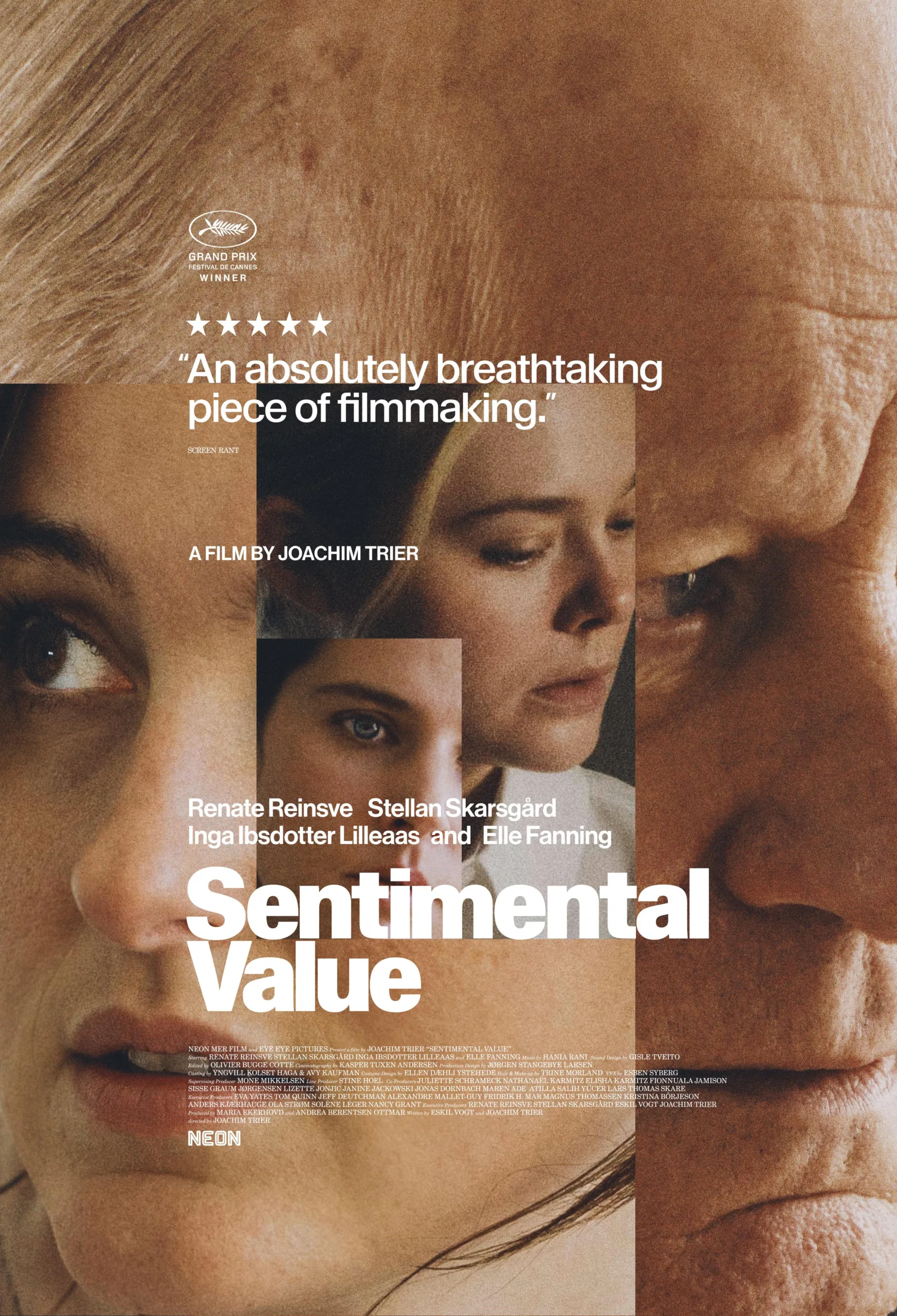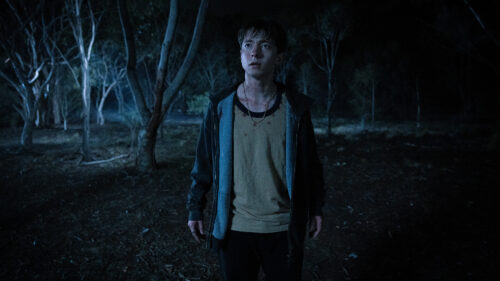Joachim Trier’s masterful “Sentimental Value” opens with two theme-defining scenes. In the prologue, we’re introduced to a home that a child has reimagined as a character for an essay, wondering if it’s happier when its belly is full of life, asking if it feels pain when its window is slammed. In the scene that follows the title card, we meet an actress in the middle of a breakdown before her opening night. She tries to run away from the full house before bursting into her version of The Seagull. A family home and the Herculean effort of performance. History, memory, expression, art, trauma—they’re all woven through Trier’s breathtaking drama, a movie that recalls Ingmar Bergman more than any he’s made yet but also one that truly cements his status as one of the working masters. It’s a movie that sneaks up on you like great fiction, blending theme and character in a way that allows it to live in your mind after you see it, rolling around what it means to both the people in it and your own life.
The actress in question is named Nora (Renate Reinsve, even better here than in Trier’s acclaimed “Worst Person in the World”), whose mother has died early in the film, bringing her estranged father Gustav (Stellan Skarsgård, never better) back into her life. Nora’s sister Agnes (Inga Ibsdotter Lilleas) has a husband and son; Nora is sleeping with her married co-star in the play. Neither really wants Dad around. The wounds that led to the estrangement aren’t fully defined, but they seem deeper for Nora, which makes it all the more startling when her director dad says he’s written a movie for her to lead. She won’t even read the script. Reinsve and Skarsgard are so good in this first scene—one of several times you can say that about their breathtaking work here—conveying a history of micro- and macro-aggressions that inform body language, cadence, and tone. His writing a part for her is an olive branch. She is not willing to take it.
And so Gustav goes off to the Deauville Film Festival, where an early work starring a young Agnes is playing. A famous American actress named Rachel Kemp (Elle Fanning) is so moved by the film that she invites Gustav to join her entourage for dinner, striking up a friendship on the beach. Of course, Rachel takes the part written for Nora, and Trier gets to play with Bergman-esque themes of identity (there’s even a direct visual allusion to “Persona”), especially when the American dyes her hair to look like the director’s daughter. As Gustav works on the film, Nora flees every interaction, while Agnes, an academic historian herself, looks into the truth about the torture in WWII and the suicide of her grandmother, about whom much of Gustav’s film-within-a-film appears to be about. “Sentimental Value” builds subtle emotional momentum. We know there will be emotional breakthroughs for these characters, but they don’t come melodramatically. They come gradually, patiently, and believably, in what’s unsaid as much as what is. The final powerful beat has no dialogue. It doesn’t need any.
Believability is so essential to the success of “Sentimental Value.” There has rarely been a film in which the family dynamic is more genuinely defined than in this one. Skarsgard, Reinsve, and Lilleas disappear into their roles, playing father, daughter, and sister so genuinely. As it always is, it’s in the small choices. There’s a hysterical bit in which Gustav buys some very inappropriate DVDs for his grandson, and the knowing laugh that Reinsve gives him is just wonderful. They follow the moment of unspoken joy with a cigarette, laughing and smiling as they do so. Strained relationships aren’t only defined by their strain. And it’s often when we stop talking that old bonds reform just a little bit. When Hollywood mistakenly thinks that fraught family dynamics are only one thing, it leads to melodrama. Trier and his performers understand this, defining their characters outside of their greatest emotional upheavals, making them all the more powerful.
“Sentimental Value” is largely a performance and screenwriting feat, which means the film’s remarkable craft is likely to go underrated. A minute here to lavish praise on the fluid cinematography of Kasper Tuxen and perfect editing from Olivier Bugge Coutté. Trier works with them to give a very talky film momentum for over two hours, granting the film a confident visual language without drawing too much attention to itself. The film is essentially broken up into chapters with hard cuts to black every few minutes, again giving it all the echo of great fiction unfolding in feature film form.
Gustav’s film isn’t about one thing. Neither is Joachim’s. The text of Gustav’s appears to be about his mother, but it’s also very clearly about his daughter. And his grandson. And himself. It’s important that the two women at the center of this film are an actress and a historian. They represent artistic expression and historical curiosity, how the two intertwine, and how artists bring their lives into their work. Fanning is excellent at playing the well-meaning performer who can’t quite get to where Gustav needs her to be because she hasn’t lived it. She does the best job she can with a heartbreaking monologue in English during a rehearsal, but it’s even more powerful later when spoken in its original language. It’s truer in a way that Rachel can’t replicate.
You need to live to make great art. And you need great art to live.
This review was filed from the Toronto International Film Festival on September 5. It opens on November 7, 2025.




















